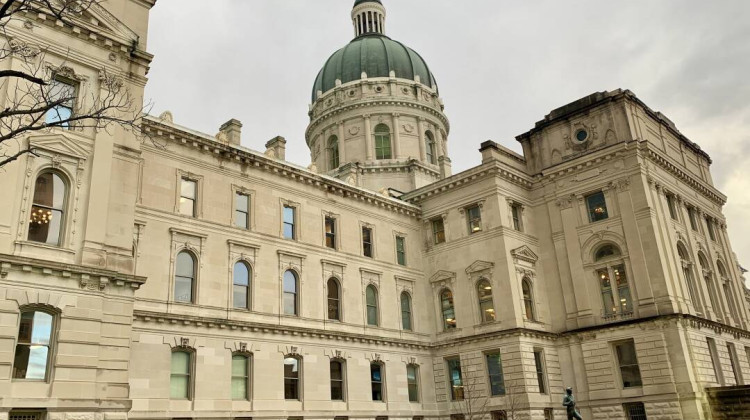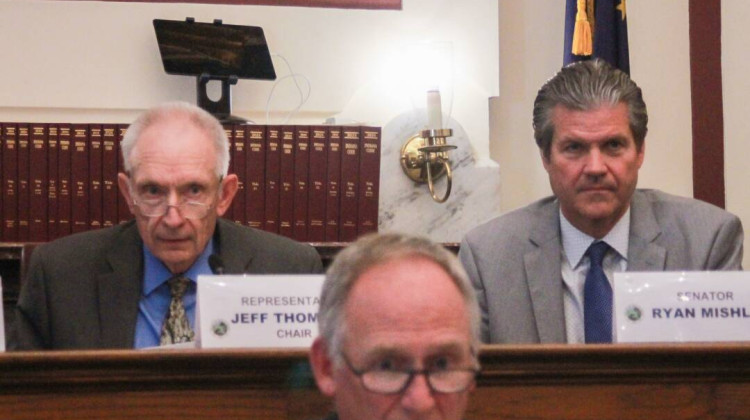
One of the authors of the bill, Sen. Scott Baldwin (R-Noblesville), said this bill allows communities to build programs that would work best for them.
Brandon Smith/IPB NewsMore communities could have access to financial support to build mobile crisis response units or teams under a proposed pilot program.
A Senate committee passed a bill that would establish a grant program to create or expand programs connecting people in crisis to resources in the community.
Mobile crisis response programs can take pressure off of emergency services by minimizing repeat calls and connecting people to resources. SB 10 would establish the Community Cares Initiative Grant pilot program to provide financial support for these mobile response programs.
Noblesville Mayor Chris Jensen said his city created a mobile response program in February 2020.
“We needed to evaluate how we treat and how we proactively help individuals who are at risk in our communities,” Jensen said. “So we launched the NobleACT program.”
Jensen said the NobleACT program has given Noblesville the tools to address mental health or substance use issues, and challenges associated with aging or premature births. Since the program started, NobleACT has responded to more than 6,000 calls.
One of the authors of the bill, Sen. Scott Baldwin (R-Noblesville), said this bill allows communities to build programs that would work best for them.
“Every community has different needs and different opportunities,” Baldwin said. “Every response needs a different curated response.”
Join the conversation and sign up for the Indiana Two-Way. Text "Indiana" to 765-275-1120. Your comments and questions in response to our weekly text help us find the answers you need on statewide issues, including our project Civically, Indiana and our 2024 legislative bill tracker.
Mike Whited, the vice president of the Professional Fire Fighters Union of Indiana, said the bill would help emergency services better support people experiencing mental health or substance use issues.
“Our only option when we do this is to take them to an already overburdened E.R.,” Whited said. “We've got the frequent fliers that we deal with almost every day in Muncie.”
The pilot program would initially use funding from the Family and Social Services Administration, and lawmakers could add additional funding during the budget session next year.
The bill passed the Senate Health and Provider Services and the Senate Appropriations Committee unanimously. It now goes to the full Senate for consideration.
Abigail is our health reporter. Contact them at aruhman@wboi.org.
 DONATE
DONATE






 Support WFYI. We can't do it without you.
Support WFYI. We can't do it without you.